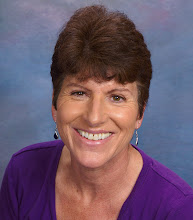I’ve been editing the first draft of my new novel (Secrets to Die For), and I became aware of some changes I consistently make—for the better. I’ll share them here, in case you find them useful.
1. I get rid of the word “it” and replace it with the specific thing that I’m referring to, even if I just named that thing in the previous sentence. “Jackson reached for his Glock. The weapon felt heavy in his hand” is better than “Jackson reached for his Glock. It felt heavy in his hand.” In verbal communication, repetitive use of “it” may be acceptable, but in narrative writing such lack of clarity is ineffective and often confusing.
2. The same is true of overuse of pronouns. So I’ve also consistently replaced “she,” “he,” and “they” with the specific name of the character(s). Sometimes it feels too formal to use the character’s name three times in a paragraph, but if the character, say, a guy named Jack, is talking about the suspect, a guy named Vinnie, then referring to either of these guys as “he” can be confusing to the reader. This is a point that Stephen King makes in his great book On Writing.
3. The third most consistent edit I make is to tweak individual scenes so that they read like mini-stories, with mounting tension, a climax, and a conclusion. The exception to that structure are scenes at the end of chapters, which I often leave with a revelation, a hint of a revelation, or a great deal of uncertainty (aka, cliffhangers).
------------------------------------------------
L.J. Sellers
author of the Wade Jackson mysteries
http://ljraves.blogspot.com
http://ljsellers.com
1. I get rid of the word “it” and replace it with the specific thing that I’m referring to, even if I just named that thing in the previous sentence. “Jackson reached for his Glock. The weapon felt heavy in his hand” is better than “Jackson reached for his Glock. It felt heavy in his hand.” In verbal communication, repetitive use of “it” may be acceptable, but in narrative writing such lack of clarity is ineffective and often confusing.
2. The same is true of overuse of pronouns. So I’ve also consistently replaced “she,” “he,” and “they” with the specific name of the character(s). Sometimes it feels too formal to use the character’s name three times in a paragraph, but if the character, say, a guy named Jack, is talking about the suspect, a guy named Vinnie, then referring to either of these guys as “he” can be confusing to the reader. This is a point that Stephen King makes in his great book On Writing.
3. The third most consistent edit I make is to tweak individual scenes so that they read like mini-stories, with mounting tension, a climax, and a conclusion. The exception to that structure are scenes at the end of chapters, which I often leave with a revelation, a hint of a revelation, or a great deal of uncertainty (aka, cliffhangers).
------------------------------------------------
L.J. Sellers
author of the Wade Jackson mysteries
http://ljraves.blogspot.com
http://ljsellers.com


L.J, you really nailed it with your suggestion about using "it" and with your third point, but I am not sure I totally agree with number two. I think the problem with pronouns is when they don't reflect back to the correct proper noun. Then it can be confusing and that needs to be clarified for the reader. But using the character names all the time instead of pronouns can be as jarring as using pronouns that don't reflect back to the right proper noun. In editing, I always make sure that the reflection is right, then the pronouns work. And I have had editors go through my manuscripts and replace character names with pronouns to avoid an overuse of the proper names.
ReplyDeleteThanks for some great tips, especially the clear noun to replace 'it'. I was told years ago by an editor to get rid of 'that' in most instances, which also makes the ms read more smoothly. I'll definitely be back and look forward to future tips and insights. Great idea for a blog, too btw.
ReplyDeleteRomance writer, Loring Parks from Juicy Like An Apple.
Good advice, L.J. And thanks for the link to Stephen King's book. I've been intending to order it. :)
ReplyDeleteLove all of these, and number three is one I totally live by. Over the years, my writing has taken more of a TV, episodic spin to it, and my scenes are looking more like mini-stories with cliffhanger moves to the next scene...the next chapter.
ReplyDeleteThank you for the great tips.
ReplyDelete